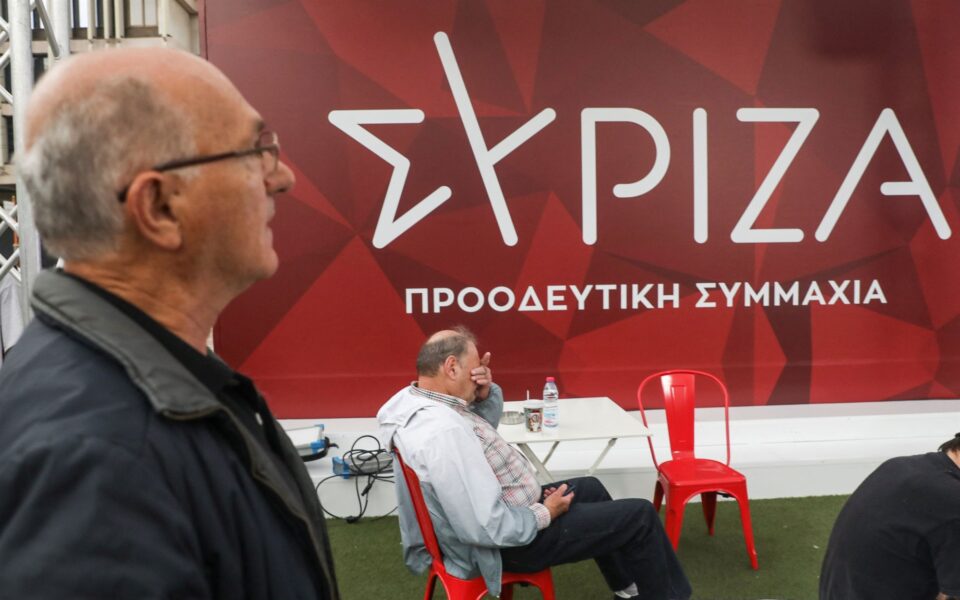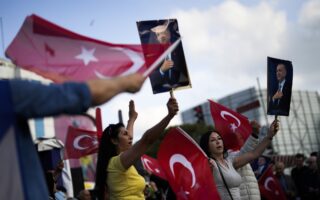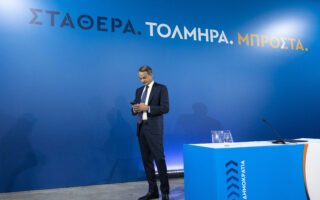Pollsters looking for answers
Analysts are seeking to explain why the May 21 election result was not foreseen by surveys

A week before Greece’s May 21 general election, communications consultant Stavros Kontaxis carried out an experiment. Using ChatGPT he designed a model for a poll of polls, inputting all the available survey results to see what kind of conclusion it would yield. Having already been responsible, with his company, for the online pre-election campaign of Cypriot President Nikos Christodoulides, he tested the model’s ability to predict the outcome using the data from that ballot and found it to be successful. When he then processed the data from the Greek public opinion polls he was surprised to see that the chatbot’s predictions for the ballot showed a much larger difference (of 15 points) between incumbent New Democracy and main opposition SYRIZA than was being reported. “We all had the same numbers; we just chose to analyze them differently,” he notes.
The prediction was confirmed in discussions with three top pollsters on the Friday before the election. “All three expressed their reservations about finding SYRIZA to be polling much lower than expected. One of them even mentioned a rating of under 20% and commented that the leftists had also been polling well below the end-result in the 2019 election. All three attributed the low numbers to SYRIZA leader Alexis Tsipras’ deliberate strategy to oppose the findings of public opinion polls, and therefore encourage his supporters not to participate in surveys. They believed, in short, that the sample was ‘tainted’ so they adjusted the ratings higher,” explains Kontaxis.
‘An increasing number of voters decide in a completely different way and at the last minute. In 2019, that rate was 10%; now we saw it climb to 19%’
On the morning of Sunday, May 21, those three pollsters and other colleagues gathered at the offices of MRB, host of the team that produced the exit poll, which has been carried out by six firms since 2009. Out in the field, researchers and tellers were already gathering data, which they reported to the pollsters by phone. That data was analyzed and discussed in a series of regular meetings.
“A new parameter emerged in one of those meetings that led us to make the mistake of overestimating SYRIZA’s performance,” one of the pollsters told Kathimerini, asking that he not be named. “We saw that one in five voters decided what to vote for on the day. Voters used to be politically loyal, but in the past few years we have seen an increasing number deciding in a completely different way and at the last minute. In 2019, that rate was 10%; now we saw it climb to 19%.”
The pollsters were perplexed by this unprecedented trend. Just over an hour after the 7 p.m. closing of the polls, they left the MRB office and split up to head to the television stations, where each was scheduled to analyze the results as they came in. “We had understood that we were looking at a political earthquake, we just didn’t know how strong it would be,” the pollster said. What they had missed was SYRIZA’s crushing defeat, as it trailed ND by 20 points. The day after the election, almost all of them spoke candidly about a climate of “fear and intimidation,” and said that this had also played a role in their reticence. By Tuesday morning, the buzz was that they had been too afraid to publish the real numbers and had “tweaked” them.
Even though the heads of the six polling firms had an incredibly busy schedule, they sat down for a teleconference on Tuesday afternoon and discussed the developments of the previous 48 hours. According to information obtained by Kathimerini, most expressed annoyance at being misquoted. “It is unconscionable and completely irrational to believe that we had the result and didn’t go public with it. What we had suggested was that SYRIZA’s bullying had worked on voters, not that it had worked on us,” they stressed. As they explained to a committee of their association (SEDEA), while they had seen a significant difference between the two main parties, they also saw that SYRIZA was underrepresented, as well as a lot of rejections. “What we got from many people was rage, accusations that we were the minions of an evil system trying to harm their party. Many refused to answer and hung up the phone. At the same time, Tsipras was claiming that five out of seven of his voters were not participating in the polls. So we surmised that that’s where many of the rejections were coming from and estimated accordingly. That was the main mistake we made,” they admit today.
“Other topics also came up during the teleconference, such as the existence of ‘ghost’ firms spreading rumors that the contest would be neck and neck, coming down to just 30,000 votes. There were similar ‘companies’ around in 2019 and an investigation was conducted by Parliament, but it didn’t come to anything,” the pollsters comment. The meeting wrapped up with an agreement to stop the discussion that had begun on election night and to focus on the second election on June 25. “Once that’s over we can carry out a more levelheaded assessment of what went wrong,” they say.





